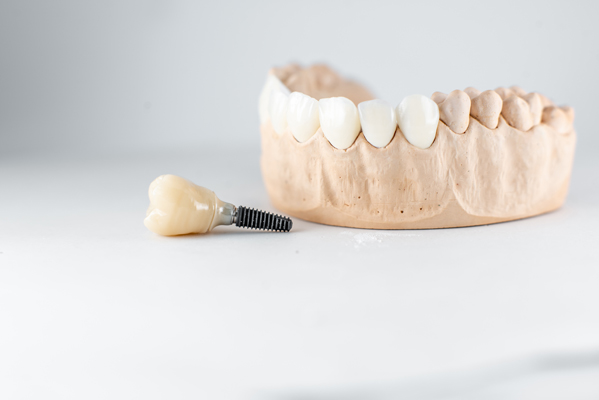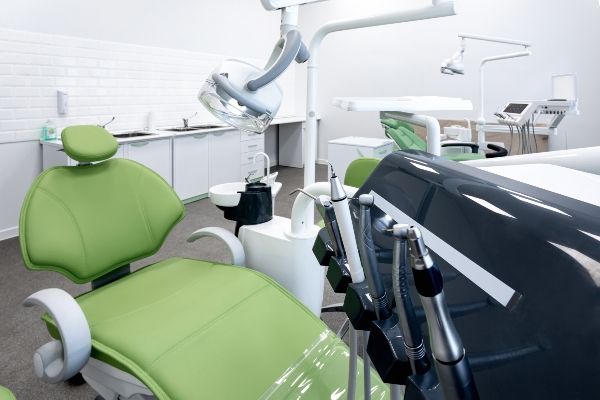How to Properly Care for Dental Implants

If you are dealing with significant dental trauma or tooth loss, dental implants are a permanent solution that can help restore your smile. The gaps created from missing teeth can also impact speaking and chewing abilities. Many patients enjoy the natural-looking and durable results that implants can offer over replacement options like a resin-retained bridge, a partial denture, or a complete removable denture. However, it is important to care for this type of dental work properly to ensure a better outcome.
Recovering from the dental implant procedure
Traditional implants require multiple surgeries that allow the tissues to heal and the jaw bone to properly fuse between steps. However, some patients may be candidates for same-day implants. Whether you schedule a single procedure or multiple appointments, most patients can expect the same general type of recovery.
Knowing procedural length
Though the entire process for implant restoration could take as little as six months to complete, there are some options for attaching an artificial tooth in one day. Considering the discomfort from the procedure, it is a good idea for another person to attend the procedure and drive the patient home. It is safe to plan on spending at least two hours at the dental office. Speak to a dental specialist about a more accurate estimate for the procedure.
Managing pain and swelling
For the first few days after receiving dental implants, patients will likely experience mild to moderate pain and inflammation. Some light bleeding and minor bruising may occur as well but should clear up within a few days. Patients should be careful to follow the dentist's recommendations for pain medication and can use cold compresses to help keep swelling under control.
Eating a soft-food diet
For the first few days after the procedure, it is important to be gentle with your teeth and gums as they recover. Eating hard, tough, or crunchy foods can be painful and may cause the stitches to pull, resulting in even more discomfort. A soft-food diet is recommended until the discomfort and swelling subside. Gradually reintroducing other foods can help prevent unnecessary pain or damage.
Allowing incisions to heal
For the area to heal properly and thoroughly, a clot has to form at the incision site. However, spitting, rinsing, or drinking through a straw can create pressure in the mouth and loosen the clot or prevent it from forming altogether. Dentists recommend avoiding these practices for the first 24 hours after a dental implants procedure.
Worrying about implant failure
Implant failure could occur if too much pressure is put on the implant or if an infection develops at the sight of the implant or in the gums. Failure can occur within a few months or over a year later, leading to the potential removal and replacement of the implant.
Long-term care for dental implants
The first 24 to 48 hours after this treatment require the most specific care. After a day or two, many patients find they feel able to return to normal activities. However, it can take many weeks for the soft tissues to heal completely. It is important to continue to care for dental implants to promote faster healing while preventing complications.
Routine dental care
Brushing and flossing are essential, especially around an implant. Use a soft nylon toothbrush and avoid using abrasive toothpaste or mouthwashes. There are several types of flosses designed for use with implants to make flossing easier. Cleaning may look different for the first few weeks after surgery, but once the area has healed enough, patients should resume regular dental care. It is also essential to keep up with follow-up appointments and regular checkups.
Lifestyle changes
In general, patients do not need to make major dietary changes for dental implants. It is wise to avoid or limit extremely hard foods as these can damage the tooth cap. Smoking and tobacco use can increase the chances of implant failure and should be avoided. Chewing on foreign objects or teeth-grinding can also be harmful to implants.
Conclusion
Dental implants are a great option for restoring lost or severely damaged teeth. There is a decreased risk of losing jaw bone density or experiencing problems with eating or speaking when implants replace missing teeth. This restorative solution is convenient and durable, presenting individuals with a reliable option for addressing multiple aspects of oral health. With the proper care both immediately after the procedure and long-term, patients can enjoy the benefits of this type of treatment for a lifetime.
Request an appointment here: https://bcdentalneedham.com or call Brede Ciapciak Dental at (781) 443-8134 for an appointment in our Needham office.
Check out what others are saying about our dental services on Yelp: Dental Implants in Needham, MA.
Recent Posts
Many individuals experience oral health issues beyond surface-level discomfort due to underlying conditions and require professional evaluation. A dental practice diagnoses, treats, and prevents these concerns before they progress into more severe complications. Scheduling regular visits with these dental professionals can help you maintain your oral health in the short and long term.Regular dental examinations…
Having a healthy and attractive smile not only transforms your appearance but also boosts your confidence. A smile makeover combines cosmetic dental procedures that are tailored to your unique needs and treatment goals. If you have been wondering if you have been contemplating whether a smile makeover is right for you, here are five reasons…
Scheduling an initial visit to a dental practice marks the first step toward maintaining optimal oral health. Proper preparation for this appointment ensures a seamless experience, allowing the dental team to provide the highest-quality care possible. Understanding what documents and information to bring facilitates efficient care, reduces stress, and helps patients feel comfortable and informed…
Visiting dental practices remains important for individuals seeking proper strategies to maintain clean teeth and healthy gums. Effective brushing and flossing habits prevent cavities and gum disease, contributing to oral comfort. While these techniques may appear simple, many people benefit from expert guidance to ensure thorough and gentle oral care. The following recommendations offer step-by-step…


